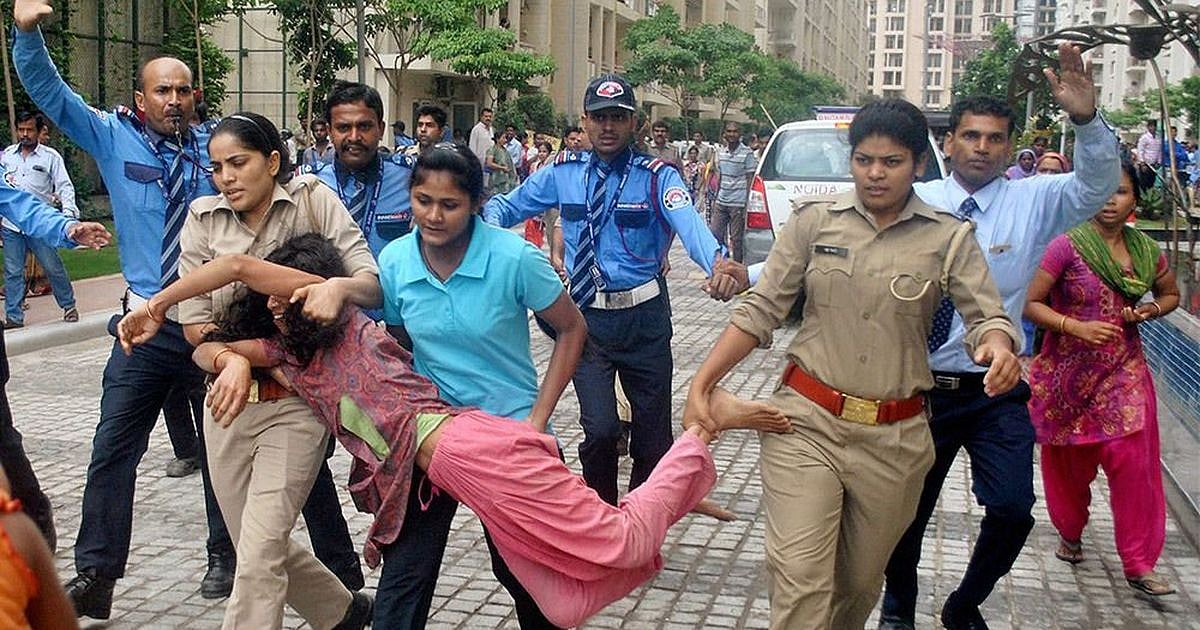Prioritise Tharoor’s Bill to Give Domestic Workers Legal Security
The rights of 10 million domestic workers, 80% of whom are women, need to be represented.

advertisement
Government data claims 3.9 million, while trade unions estimate there are around 10 million domestic workers in India. But there exists not one law that specifically deals with this unorganized sector, of which 80% are women.
In 2010, the National Commission for Women had drafted the ‘Domestic Workers Welfare and Social Security Act’ to help address complaints about unpaid wages, starvation, inhumane work hours and verbal, physical and sexual abuse. The proposed law was meant for domestic workers above 18 years of age and clearly stated that no child shall be employed as a domestic worker.
But the draft remained a proposal.
In 2011, the International Labour Organization adopted Convention 189 which “offers specific protection to domestic workers. It lays down the basic rights and principles, and requires States to take a series of measures with a view to making decent work a reality for domestic workers.
India voted in favour of the convention, but is yet to ratify it.
Ratifying an international convention amounts to a formal commitment to implement all the obligations, including passing of comprehensive legislation for domestic workers.
The same year, the government made a half-hearted effort by including domestic workers in the Rashtriya Swasthya Bima Yojana (RSBY) – a smart card based cashless health insurance scheme. But, there was a catch. Only registered domestic workers could avail the cover of up to Rs 30,000 cover.
To register, a domestic worker would have to get certificates from two of four listed institutions – the employer, the police, the resident welfare association, or recognised trade unions.
The Delhi police verification form has a section titled ‘Description of Employee’ asks for the worker’s height, built, hairs, tattoos, petwords of speech (?!) to be specified. As for the employer, the name, address and a telephone number is assumed to be sufficient.
Two other legislations – the Unorganized Workers Social Security Act, 2008 and the Sexual Harassment of Women at Workplace (Prevention, Prohibition and Redressal) – include domestic workers, but does not address their specific vulnerabilities.
A few states like Rajasthan, Andhra Pradesh, Karnataka, Kerala and Bihar have fixed minimum wages, but in most cases the wage rate is fixed arbitrarily, is too low and irrelevant to those working in urban areas where the cost of living is much higher.
In August 2016, Congress MP Shashi Tharoor introduced the The Domestic Workers’ Welfare Bill, 2016 in the Lok Sabha. Here’s a look at some of its important features.
1. Private Household and a Workplace
The Bill defines ‘domestic work’ as work performed in or for a private household(s) and includes cooking, cleaning, housekeeping, driving, gardening, child care and old-age care, but does not include work related to businesses run from private households.
Specifying households as a workplace and not treating it as a ‘private space’, would, in itself be a significant step in securing the rights of domestic workers.
2. Includes Migrant Workers
In the recent confrontation between domestic workers and residents of Mahagun Moderne in Noida, migrant workers were identified and banned. The proposed Bill defines ‘domestic worker’ as a person employed to do domestic work for a remuneration, whether in cash or in kind, for one or more employers by staying at the household premises or otherwise and includes casual, temporary, contractual or migrant workers.
3. Provision for Children under 18 employed as Domestic Workers
In the 2010 Bill proposed by the National Commission for Women, there was a zero-tolerance towards employing domestic workers under the age of 18. The 2016 private member’s Bill defines a ‘minor domestic worker’ as one who is above the age of sixteen years, but below the age of eighteen and has completed compulsory elementary education.
4. Enhanced Definition of Wages
Under the proposed Bill, ‘wages’ means all remuneration expressed in terms of money, but does not include the value of any accommodation (rent), supply of light, water, medical attendance etc. The employer would also be liable to extend his/her contribution towards any social security scheme or insurance, give travel allowances or concessions and any other compensation on discharge.
5. Contract Registration
The employer or the placement agency would have to, within two months of the commencement of the employment of a domestic worker, register the employment agreement and get it verified by either the local Panchayati Raj institution or the local urban body, the resident welfare association, or a non-profit organisation working among domestic workers.
While the intent of the Bill cannot be disputed, it is least likely to be a priority and most likely to be met with resistance on the practical aspects of implementation. And while legislation alone won’t solve the bias and discrimination that domestic workers in our country face, a healthy debate could go a long way in influencing attitudes among employers.